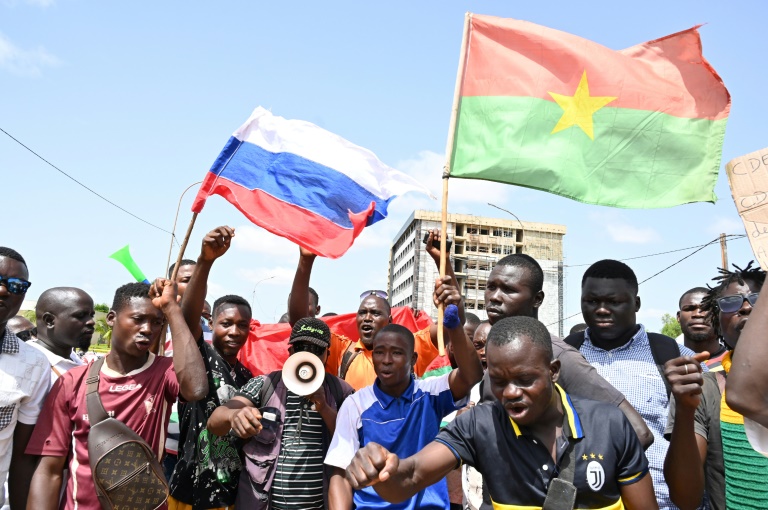Ukraine’s cross-border incursion into Russia has disrupted Russian mercenaries’ plans in junta-led Burkina Faso, with many now pulled out to help boost Moscow’s defences back home, a paramilitary commander said on Friday.
In an interview with AFP, Viktor Yermolaev, head of a paramilitary unit known as Medvedi (Bears) in Russia and the Bear Brigade in the West, said many of his fighters had left the West African country, while some stayed behind.
Ukraine earlier this month launched the unprecedented incursion into Russia’s western Kursk region, adding a new factor in the over two year war that began in February 2022 with Moscow’s invasion of its neighbour.
The Bear Brigade is one of several such mercenary groups that emerged in recent years alongside the now defunct Wagner Group of the late Yevgeny Prigozhin and Western analysts say are closely linked to the Russian state.
“We thought Ukrainians wanted to end this war and sit down at the negotiating table, but after their entry into the Kursk region we see that they chose the path of war, and war is our job,” said Yermolaev, who is also known by his call sign Jedi.
“There is no higher honour for a Russian warrior than to defend his homeland. This is the way,” added Yermolaev, who said he had served in Russia’s airborne troops for 15 years.
He said he was now in Russia but declined to provide further details or say how many fighters had been pulled out.
The unit’s Telegram channel said earlier this week that “due to recent events” the unit was returning to Crimea, the Ukrainian Black Sea peninsula annexed by Russia in 2014, where it is based.
A Western security source told AFP that around a hundred fighters of the paramilitary unit had left Burkina Faso.
Western intelligence believes that the fighters have been tasked in particular with providing security for the country’s junta leader Ibrahim Traore who took power in 2022.
A succession of coups in francophone western Africa — in Mali in 2021, Burkina Faso in 2022 and Niger in 2023 — have led to a drastic increase in Russia’s influence as Russian mercenaries were called in to prop up new regimes.
Coup leaders in Burkina Faso expelled troops and diplomats from former colonial ruler France and turned to Russia for military assistance.
Yermolaev declined to discuss their operations in Burkina Faso, but said there were around 300 Bear Brigade fighters in the African country before the Kursk incursion.
“Some are remaining of course, we have bases and property, equipment and ammunition, we’re not taking all that to Russia.”
One picture circulating on social media shows Yermolayev, shaven-headed and with a salt-and-pepper beard, smiling and clasping Traore’s hand. Yermolaev told AFP the picture was recent, saying he “stopped by to say goodbye” to Traore.
In June, an African diplomatic source had told AFP that “two rotations of planes carrying Russian instructors” had arrived in the country from neighbouring Mali.
The term is generally used to describe Russian mercenaries operating in Africa.
Yermolaev claimed his group was independent of the Russian defence ministry. “But we always help them when they come to us,” he added.
In June, Jack Margolin, an expert on Russian mercenarism for the Foreign Policy Research institute (FPRI), described the unit as being under control of the Russian defence ministry.
“The Bears are basically a group of volunteers,” Lou Osborn of the All Eyes on Wagner monitor said, adding its members had signed a contract with Russia’s GRU military intelligence service.
Wagner, Russia’s most notorious mercenary group, was disbanded and reorganised following the death of its leader Prigozhin in a mysterious plane crash last year following an aborted mutiny.
Russian security operations in Africa are now coordinated through an umbrella group known as the Africa Corps.







